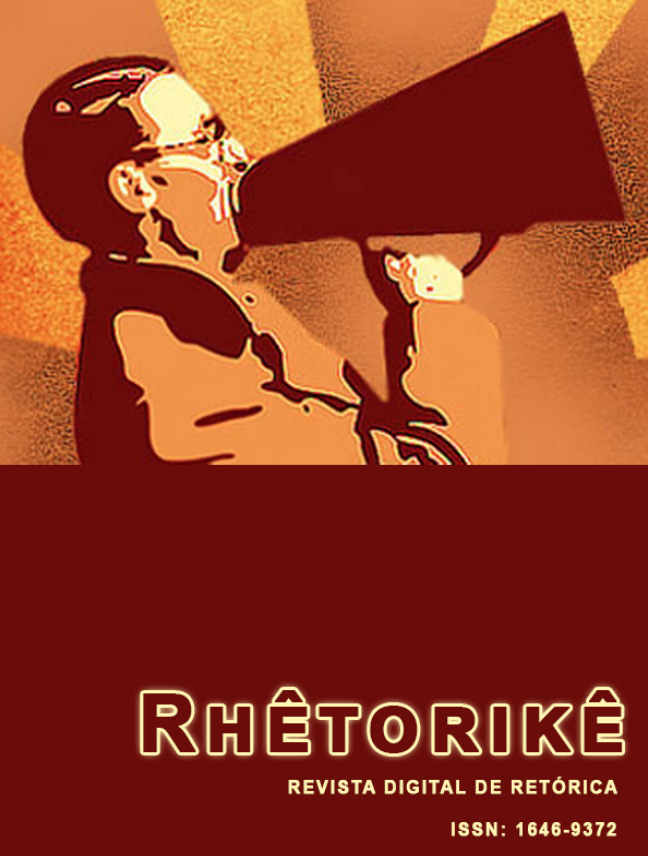A presença e a comunhão para todos
a “ética” do Primeiro Comando da Capital como elemento argumentativo
Abstract
In the Brazilian context, the criminal organization Primeiro Comando da Capital, or PCC, has demonstrated a relationship of value with its members, the product of the development of a strange but notorious empathy. In particular identification, through the “way of crime”, suggests a reasonableness moderated by discourses of equality, freedom, peace and justice, capable of guiding moral behavior. Given the usefulness of rhetorical means in the production of discourses, we aimed to promote an Aristotelian-based rhetorical analysis of the ethical constitution discursively referenced by the PCC. Through the communication established in the “statute of the PCC”, which is emphasized by the group, we investigated if and how the PCC proposes the grasping of a logic of values through the issuance of “virtues” that function as actions, norms, measures and procedures for the organic protection of the group; in verisimilitude, it behaves like the branch of the Intelligence doctrine called Counter-intelligence. In order to carry out a detailed observation of this “statutory” expedient mobilized in the construction of discourse, we turned to the framework of Aristotle’s ethical and rhetorical theories. We sought to understand how the normative of the PCC points to the (im)permanence of central notions in the configuration of Aristotelian ethics, especially in relation to virtue.
Keywords: Rhetoric; Ethics; Primeiro Comando da Capital; Criminal organization; Intelligence.
Downloads
Published
Issue
Section
License

This work is licensed under a Creative Commons Attribution-NonCommercial-NoDerivatives 4.0 International License.
A Rhêtoriké- revista digital de retórica é uma revista de Acesso Livre.Todos os seus conteúdos estão disponíveis gratuitamente, sem custo para o utilizador ou para a sua instituição.O utilizador pode ler, baixar, copiar, distribuir, imprimir, pesquisar ou vincular aos textos completos dos artigos nesta revista sem autorização prévia do editor ou do autor.
A Rhêtoriké- revista digital de retórica, LabCom.IFP, está licenciado sob uma Licença Creative Commons Atribuição-Não Comercial-NoDerivs 3.0 Unported.Ao enviar seu trabalho para a revista, confirma ser o autor e que possui os direitos autorais, que o conteúdo é original e anteriormente inédito e que concorda com os termos de licenciamento.
English:
Rhêtoriké- digital rhetoric journal is an Open Access journal.All its contents are available free of charge, at no cost to you or your institution.You can read, download, copy, distribute, print, search or link to the full texts of the articles in this journal without prior permission from the editor or the author.
Rhêtoriké- digital rhetoric journal, LabCom.IFP, is licensed under a Creative Commons Attribution-NonCommercial-NoDerivs 3.0 Unported License.By submitting your work to the journal, you confirm that you are the author and that you own the copyright, that the content is original and previously unpublished, and that you agree to the licensing terms.

